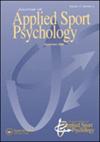Beyond “a good fit”: Examining effective mentorship for BIPOC practitioners in a predominantly white profession
IF 2.7
2区 心理学
Q2 HOSPITALITY, LEISURE, SPORT & TOURISM
引用次数: 2
Abstract
Abstract Sport psychology (SP), is often dominated by hegemonic viewpoints, and has historically lacked multiculturalism and awareness of intersectional oppression and marginalized identities, resulting in feelings of alienation for Black, Indigenous and people of color (BIPOC) practitioners. Literature from Association for Applied Sport Psychology (AASP) recommends mentorship as a way to foster professional growth and well-being. However, recommendations are often vague concerning the obstacles to success, systemic racism, sexism, and other forms of oppression that affect young professionals. By combining the specific demands of SP with critical race theory, feminist and womanist mentorship practices, and intersectionality, we outline a model of mentorship that aims to foster well-being and retention for BIPOC professionals. Specific recommendations include (1) directly naming obstacles related to systemic oppression; (2) fostering a sense of mutual care, trust, and refuge between mentor and mentee; and (3) avoiding exploitation and advocating for mentee success and thriving. Questions to be considered are (1) whether same-identity mentorship is necessary for a successful mentor-mentee relationship; and (2) how to work within a neoliberal university or sporting system. Lay summary: Mentorship is essential to becoming a competent and certified sport psychology professional. Research has noted that most sport psychologists are white and male, and we use various theories to examine how mentorship practices can improve so that more minority and female practitioners can join and thrive in the profession. IMPLICATIONS FOR PRACTICE In order to transform the field, mid-level and experienced sport psychology practitioners who have the capacity should provide caring, critical, and collaborative mentorship to BIPOC practitioners. Practitioners who serve as mentors should deliberately discuss the racism, misogyny, and other obstacles that exist in sports and academia. Mentors should borrow from feminist, womanist, CRT, and intersectionality scholars to create liberatory non-hierarchal relationships that foster institutional change.超越“非常适合”:在以白人为主的职业中检验BIPOC从业者的有效指导
体育心理学(SP)经常被霸权主义观点所主导,历史上缺乏多元文化主义和交叉压迫和边缘化身份的意识,导致黑人,土著和有色人种(BIPOC)从业者的疏离感。来自应用运动心理学协会(AASP)的文献建议,指导是促进专业成长和幸福的一种方式。然而,关于成功的障碍、系统性的种族主义、性别歧视和影响年轻专业人员的其他形式的压迫,建议往往是模糊的。通过将SP的具体要求与批判种族理论、女权主义和女性主义指导实践以及交叉性相结合,我们概述了一个旨在促进BIPOC专业人员幸福感和保留率的指导模型。具体建议包括:(1)直接指出与系统性压迫相关的障碍;(2)培养导师与学员之间的相互关怀、信任和庇护意识;(3)避免剥削和提倡学员的成功和繁荣。需要考虑的问题是:(1)同一性师徒关系对于成功的师徒关系是否必要;(2)如何在新自由主义的大学或体育系统中工作。概要:要成为一名合格的运动心理学专业人士,师友关系是必不可少的。研究指出,大多数运动心理学家是白人和男性,我们使用各种理论来研究如何改进指导实践,以便更多的少数民族和女性从业者能够加入并在这个行业中茁壮成长。为了改变这个领域,有能力的中级和有经验的运动心理学从业者应该为BIPOC从业者提供关怀、批判和协作的指导。作为导师的从业者应该有意识地讨论体育和学术界存在的种族主义、厌女症和其他障碍。导师应该借鉴女权主义者、女性主义者、CRT和交叉性学者的观点,创造促进制度变革的解放性非等级关系。
本文章由计算机程序翻译,如有差异,请以英文原文为准。
求助全文
约1分钟内获得全文
求助全文
来源期刊
CiteScore
6.90
自引率
9.40%
发文量
39
审稿时长
>12 weeks
期刊介绍:
The Journal of Applied Sport Psychology (JASP) is a refereed journal designed to significantly advance thought, theory, and research on applied aspects of sport and exercise psychology. Submissions such as experimental studies, qualitative research, correlational studies, case studies, position papers, critical reviews, theoretical developments specific to applied research conducted in sport and/or exercise settings, or having significant applied implications to sport and exercise, are appropriate content for the JASP. Please see the recent Editorial for further details on the aims and scope of the journal. JASP is a non-proprietary journal that is an official publication of the Association for Applied Sport Psychology (AASP). The purpose of AASP is to promote the development of psychological theory, research, and intervention strategies in sport and exercise psychology. The Journal is a direct benefit of membership in AASP and is received by its student and professional members. The publisher of the JASP is Taylor and Francis, Inc. of Philadelphia, PA.

 求助内容:
求助内容: 应助结果提醒方式:
应助结果提醒方式:


